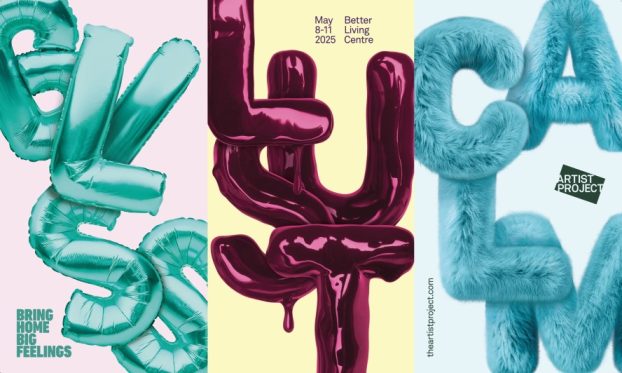CounterStrategy asks industry thinkers to put their creative brainpower behind a specific business problem or topic. There is no client brief, no rules – just out-of-the-box thinking, perhaps even suggesting a change in the way a company or category does business.
Dennis Bruce
President
Mindset Creative Planning
Dennis Bruce is an award-winning creative director who, after working with multinationals in Europe and North America, was founder and partner of former Toronto agency, Miller Myers Bruce DallaCosta. He believes there isn’t any one ideal agency model – it depends on client needs. His consultancy, Mindset Creative Planning, specializes in consumer insight research.
‘Indeed the way agencies are structured to handle [Labatt’s] business may be inefficient, if there’s a duplication of effort. But there is a lot of administrative junk that has to be handled by an agency. If the client is willing to handle it and is willing to buy only the creative, I think clients should be entitled to do that.
‘However an agency is structured, like any product in the market out there, it’s to answer a target market’s needs. Most agencies have clients that lean on them heavily in all sorts of areas other then creative. Even from training in their companies right down to all the details of how the boxes go out the door.
‘I’m assuming at this stage that Labatt doesn’t need administrative staff. Then they shouldn’t be paying for it, but they should be paying for what they get. The question then becomes, how much should they pay?
‘Basically [Labatt] is starting up a captive agency along with like-minded clients who would also like a captive agency. Is that a good model? I don’t think so. I think the agency that is captive has no freedom to counter, argue or debate with the client. I think an agency needs to have a certain distance.
‘I don’t think there is an agency model that will necessarily generate better work. I think the best creative people will always want to be iconoclasts. They will always want their freedom. They will always want to work on a variety of businesses, because variety helps gain objectivity.
‘In every agency I’ve been involved with both internationally and in my own country, the real struggle is to bring those disciplines together, business disciplines like order and efficiency with creativity – but creativity thrives on inefficiency and spontaneity and failure. All of those things strike against the efficiency model and for anyone managing the agency, you have to allow creative people to pursue paths that appear to be inefficient.
‘The business model says, ‘Know as much as you can about the business of the particular brand and you’re likely to create better advertising.’ The creative model says, ‘if you know too much it’s a pair of handcuffs and creativity very often thrives on ignorance.”
Andy Macaulay
Partner and Planner
Zig, Toronto
Andy Macaulay opened Zig in the spring of 1999 after nearly eight years with Roche Macaulay & Partners. Before that he worked in large agencies such as the MacLaren organization. He believes the ad agency model is flawed and set out to create a better one.
‘When we set out two-and-a-half years ago to create a different kind of place, our view was that at least some portion of the advertising agency model was broken.
‘We set out to create an ideas company as opposed to just an advertising agency, but the principles we set out to do it with are the same for both. If I’m a client, I want to be working with senior, talented people who obsess about my business. You ask yourself in the big agency world, ‘do the senior people, the people who have been through the wars, are they really in a position where they can obsess about my business or are they stretched so thin and carrying so many responsibilities that they don’t get to do that?’
‘In a perfect world you want a senior talented writer, a senior talented art director, a senior talented account person/planner and somebody to make sure they do their work on time and on budget – and you got your team. And how often does that happen within the big multinational companies?
‘The other piece of it is, I’m a big believer in aligned or shared fate. We try wherever we can to incorporate some form of incentive compensation that says, the client’s winning, we win. The client doesn’t win, we don’t win. There is a base level we need to be paid to keep the lights on and there should be some profit in that as well. But if the client doesn’t succeed, we should feel some pain as well.
‘Those are the two principles: senior people who obsess about the business and long-term relationships based on mutual success. The defenders of big agencies would argue that both of those are true there, but the people who have been in the trenches know that they’re not.
‘Advertising agencies are victims of their own structure. They have such a huge economic devotion to being able to produce ads, that when a client’s business solution involves something else or isn’t even advertising at all, then the advertising agency doesn’t know what to do with that. Their response has been to create silos capable of producing direct and interactive and everything else but with those silos comes huge overhead. Clients are paying that overhead whether they’re using that silo or not. Having been a senior account guy at agencies that had some of those silos, you had to sell what you had, not what was right for the client.’
Gary Prouk
Partner
The Sebastian Consultancy
Toronto
Award-winning creative director Gary Prouk runs his own consultancy. He is a veteran of multinational agency groups including Scali McCabe Sloves, which he founded and ran in Canada until it was folded into Roche Macaulay & Partners in 1996. Notorious for his biting insights into the industry, Prouk believes that not only is the agency model flawed but that clients need to overhaul their operations as well.
‘[Interbrew’s] Hugo [Powell] when he delivered the ‘fire the handlers’ speech, I think some of that was born out of a certain level of frustration.
‘Agencies are obvious and easy scapegoats. Sometimes they deserve to be, but not all the time. I think Hugo thought the problem was endemic not just to agencies but his own company. I think he tried to clean house at his own place as well.
‘Based on ‘fire the handlers’, I believe one of the things that should happen is we should fire the mishandlers – the people who run these agencies – because they have mishandled these agencies.
‘Fire the people running these conglomerates. They have nothing to do with advertising by the way. They are glorified, expense-bloated buffoons. They are highly-paid Wal-Mart greeters.
‘To talk about people in middle management and account people and firing all these superfluous layers of people, they’re only there because the mishandlers have structured the places so badly. They’re so out of touch with the world except their parents, their owners, and their shareholders in New York, London or France.
‘Now eight or nine years later, we have Labatt asserting that they’re embarking on yet another structural and sociological exercise. They are trying to restructure the business of an existing supplier.
‘[Labatt’s agency] is not an environment to challenge things unless you hire and pay whatever it costs. I think they have to go further afield. I think they have to look at other kinds of businesses. I would go to design companies, people involved in computer animation, industrial design companies – I would go anywhere where there is great thinking.
‘I don’t think having [an agency full of senior creatives and strategists] is the way to go. I think it’s best having a small group of people who in turn would be charged with bringing to bear on a specific problem as many great people from as many diverse disciplines that you could. It may just be for three or four months, but I don’t believe those kinds of people want to work day in or day out on beer.
‘Use them to generate and produce great things on a project basis. Maybe bring people in from England or the U.S. There has to be so much openness. It’s a combustible mixture of freedom, danger, energy, and passion that’s required. It’s a combustible mixture, but when it works, the results can be incandescent.
‘It’s far too simplistic and naïve to believe that without internal structures at a client you would be able to re-jig a business that will all of a sudden do wonderful things, without looking at how you, the client, interact with these people.’
Barry Base
Barry Base & Partners
Toronto
Barry Base is a creative director who has spent most of his career running or being a partner in his own agencies. During the last economic downturn in the early ’90s, he entered ‘the independent producer’ phase of his career and believes it is the most successful model for him so far.
‘I ran an agency forever. I had as many as six partners and as few as no partners. I bought my last partner out in 1988. In 1993, I closed the agency having lost within two weeks the last of a litany of clients that had gone bye-bye. So I took a floor of my house and put three or four workstations in it and said, ‘I’m going to make ads for people who would like me to.’ What started out as a temporary measure continues on today.
‘I sent my column (see Baseline, p.11), in which I quoted [Labatt’s] Fred Jaques on ‘flawed business models,’ to Saul Waring [retired founder of New York agency Waring LaRosa] to get some insights from him. He said, ‘There are no flawed business models, there are flawed people.’
‘Clients get the kind of structures they demand and the kind of structures they signal they need. When you have people who are not trained to cope with concepts and ideas, you need handlers.
‘In an ideal world, the people on the client side that the ad agency deals with should be the conscience of the company. The agency is the conscience of the consumer, who says, ‘that may be important to you but my mother-in-law doesn’t give a shit, let’s tell her something important to her.’
‘My notion of working, just one guy, you’re going to work with one client at a time, or two or three clients at a time. That’s what I’ve been doing and I have been making more money in the last eight years than I had been making at any time in 25 years trying to run the kind of operation clients told me they wanted me to run.
‘I think the independent producer model is a terrific way to produce advertising campaigns, to pick the appropriate people for each task.’






















